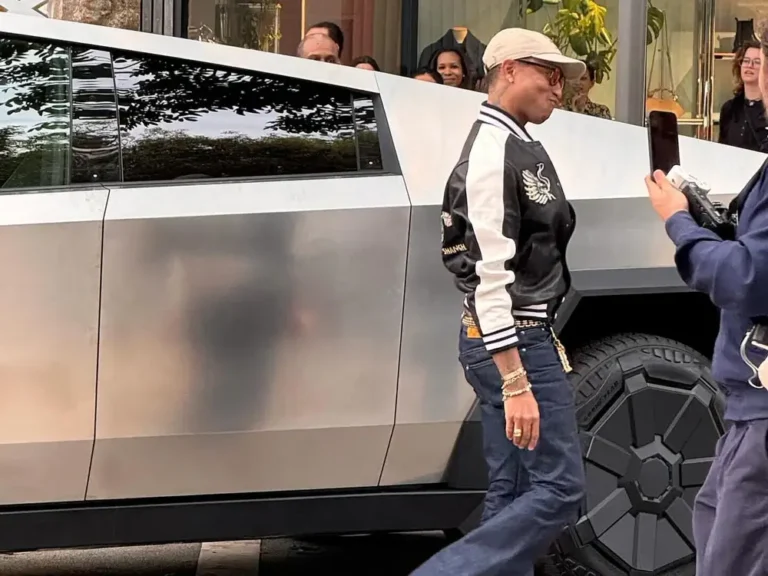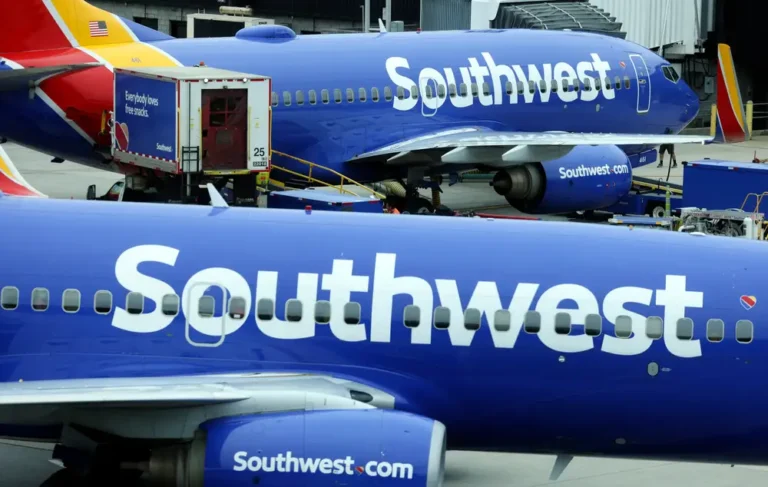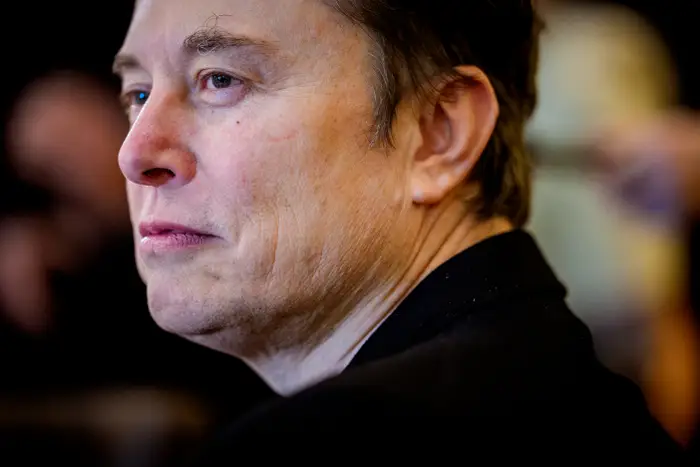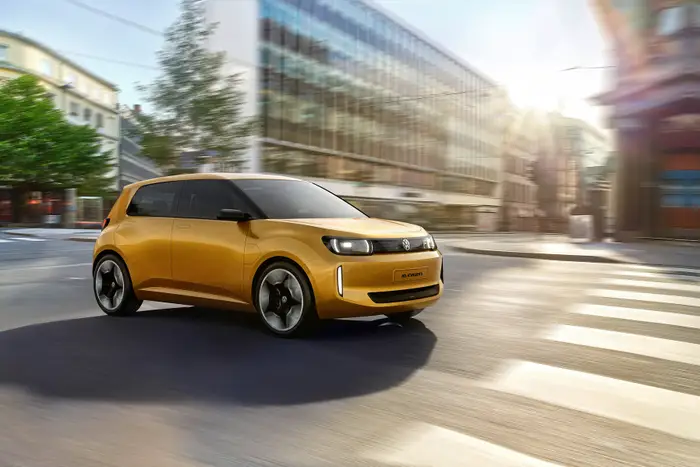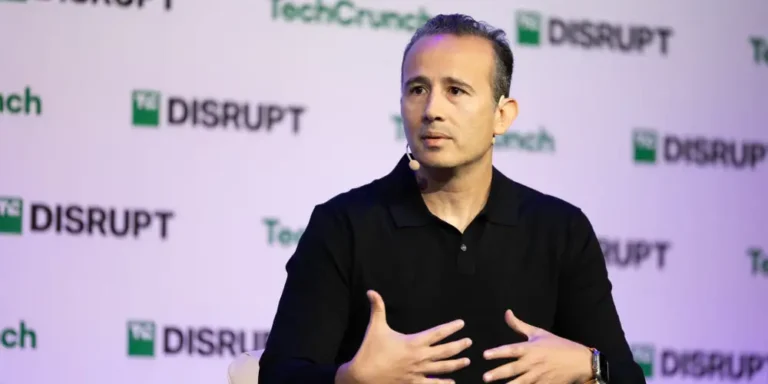I drove Mazda’s MX-5 Miata and totally get why it’s the world’s best-selling roadster
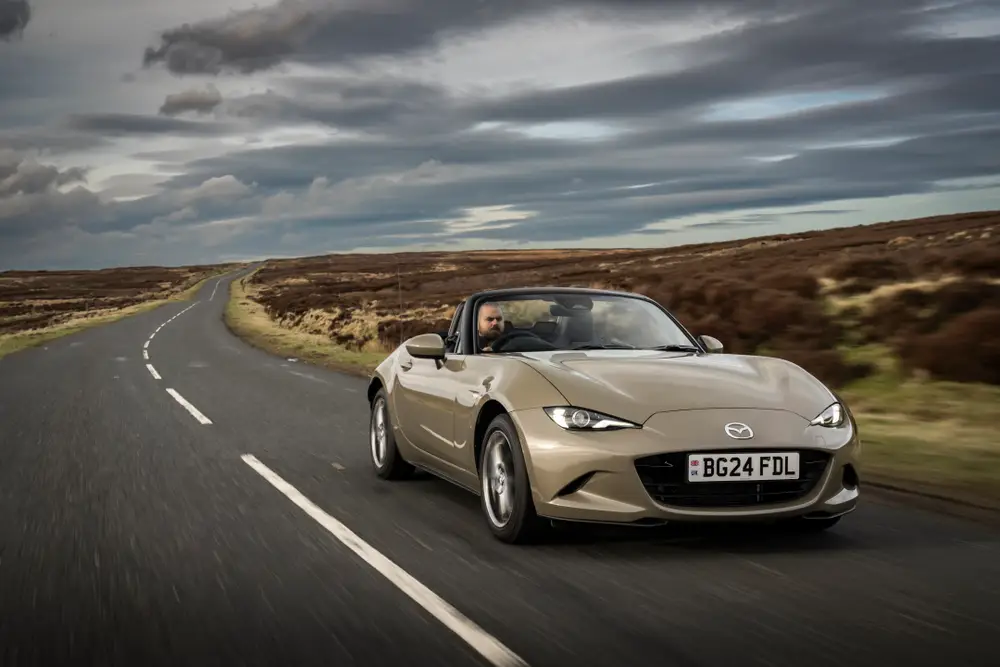
The Miata is a lot of fun to drive, with the roof up or down.
The Mazda Miata, or the MX-5 as it’s known outside the US, first hit the road in 1989 and has often been named as the world’s best-selling roadster in the decades since. About 1.2 million have been produced at the Japanese company’s Hiroshima plant.
It’s not hard to see why: compared with many soft tops, it’s very competitively priced — and a lot of fun to drive.
To mark its 35th anniversary, Mazda has updated the Miata range for the first time since the current version was introduced almost a decade ago, with tweaks to both the interior and exterior. It was also named convertible of the year at the most recent Auto Express New Car Awards.
First things first: the Miata is stunning to look at. The current iteration may lack the pop-up headlights of yesteryear but is curvier and even a touch mean-looking. I rather like it.
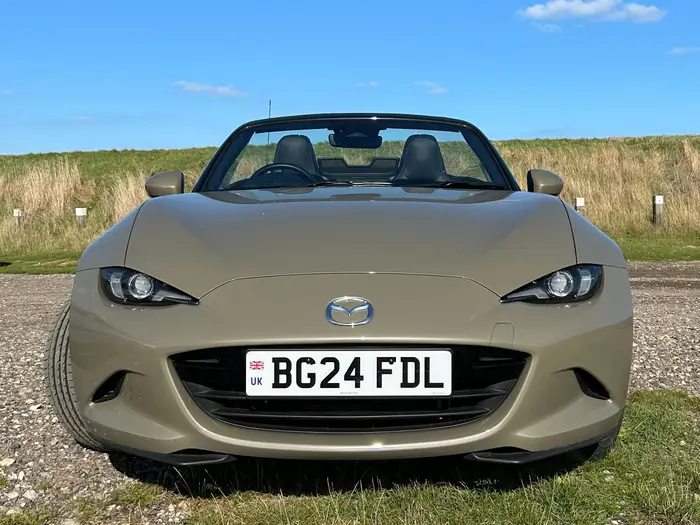
The Mazda Miata has something of a mean look.
The second thing to know about the Mazda is that it’s close to the ground. Very close. Getting into the Miata involves an act of contortion that will not please some (although I did belatedly realize that a side-saddle maneuver was far easier — if you have enough space to open the door fully.)
Once you’re in, the driving position is reasonably comfortable, and the tachometer dominates the instrument panel, perhaps somewhat fitting for a sports car — though I never got it anywhere close to the red zone that started at 7,000 RPM.
My review car came in “Exclusive” trim (the middle of three options and called “Club” in the US), which starts at about £30,000 in the UK or $32,500 in the US.
It boasts leather seats, a Bose sound system, and many clever features most drivers will probably never use, but it’s nice to know they’re there.
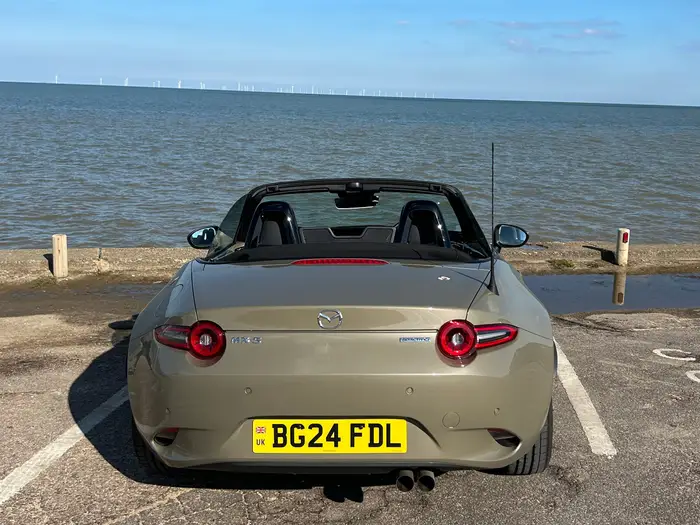
The Miata is a fun drive, with the roof up or down.
Press the start button, and the Miata roars to life with a very pleasing throaty note from the 1.5-liter petrol engine, which has solid, if not stunning, acceleration. I found the six-speed manual gearbox to be a delight, although it wasn’t until escaping inner London’s 20-mile-an-hour speed limit that I got to put it in fifth, let alone sixth gear. (And never fear, an automatic box is also available.)
On a surprisingly sunny October Saturday, we put the roof down and set off for the now-trendy seaside town of Margate in Kent, about 80 miles east of London. While the roof is manual rather than electric, it’s an absolute breeze to put down: unclip, push, and click. Job done.
You don’t have to park the car with the handbrake on and engine off to do so. Putting the roof down whenever it’s not actually raining is, to me, the whole point of having a convertible.

The Miata has a manual roof that’s super easy to raise or lower.
Driving with the roof down is a lot of fun, and with the windows up, the cabin was not blustery at all. The heating and heated seats should make having the roof down for much of the year an option if you’re of hardy stock.
Of course, the compromise with a convertible is a slightly noisier cabin, even with the roof up. And with it down on the freeway, either be prepared to crank the sound system up or just turn it off.
The other compromise is space. Given the roof housing, there is zero room behind the seats. The glove compartment comes in the form of a small box between the seats, and the trunk can take a couple of carry-on bags but not a lot more.
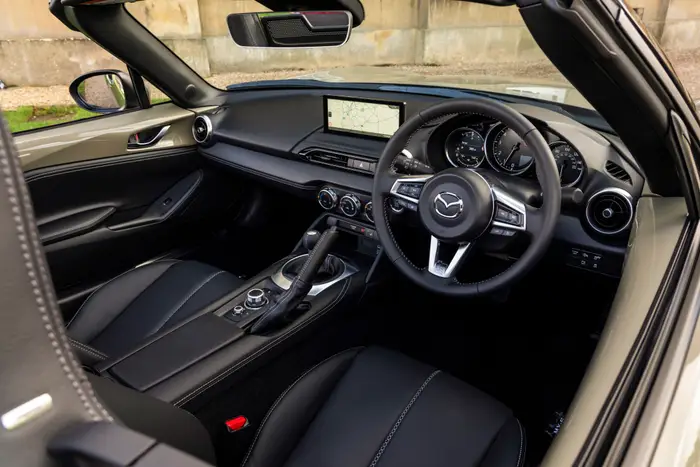
There’s not much storage space in the Miata, but everything is well laid out.
Then again, if you’re buying a sports car, luggage capacity is probably not too high on your list of priorities. Many Miata buyers will consider it a “fun” car rather than a practical means of transport. It may also cost a bomb for some drivers to insure.
Next to its more premium competitors, the Miata is a steal, starting at less than $30,000. By comparison, the BMW Z4 starts at about $54,000, and the Porsche Boxster 718 is about $75,000 and up.
Mazda may only have a sliver of the US auto market (3.1% in the first quarter of the year), but it’s models such as the Miata that make it kind of quirky and cool.

